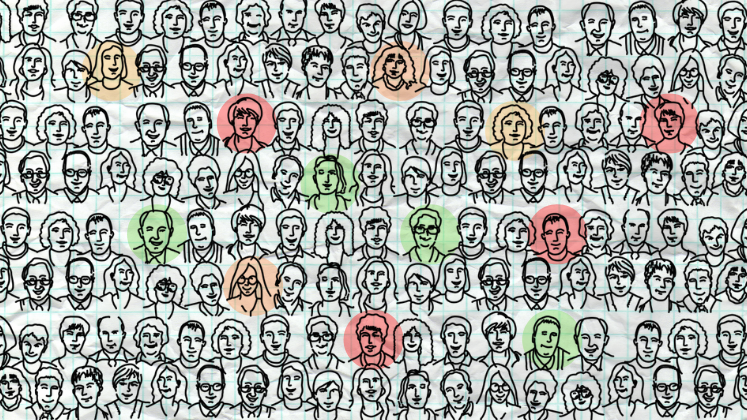The COVID-19 pandemic has impacted academic lives differentially, not the least of which, those who have lost relatives and live with the effects of the virus. For other groups, such as carers and academic parents, the pandemic has brought about a significant disruption to their working lives, but how exactly can this be accounted for? Discussing findings from an app-based momentary assessment of academic parents, Roxanna Nasseri Pebdani, shows how academic parents and especially mothers, have been disproportionately impacted by the pandemic and suggests ways in which higher education institutions should adapt to this reality.
My kids were 2 and 3 years old when we first went into Covid lockdown in Sydney. I was a mid-career academic in an education leadership role, supporting colleagues and students across our school in pivoting to online learning on short notice, while doing the same for my own class. Everything other than student facing work and feeding my children fell by the wayside. Yet, there was this constant hum in my head about how my career, and many others’, would be affected if, put simply, we had other more urgent things to do apart from research.
Thankfully, I happened to know Adriana Zeidan, a master’s student with a passion for research, had some extra time. So she, Andrew Baillie, Lee-Fay Low, and I designed a research project that would track the every-day activities of academics, in an effort to demonstrate how Covid was really impacting people’s time and productivity.
Measuring COVID impacts through App-based Momentary assessment
130 academics from all over the world downloaded the PACO app, which we used to ask people what they were doing at random points, six times per day. While we thought there would be differences between parents and non-parents, we weren’t prepared for the extent of differences we found between academic mothers and academic fathers.
Our research showed that in June and July of 2020, in the early stages of the pandemic:
- Academic mothers were 4.25 times more likely than academic fathers to be caring for children when contacted to complete the survey.
- Academic mothers were 3 times more likely than academic fathers to multitask, and nearly 5 times more likely to multitask by doing an activity and caring for children simultaneously.
- Mothers were 74% more likely to have had their work interrupted in the last hour.
- Parents were 57% less likely than non-parents to be working on research when contacted.
- Academic parents (especially mothers) were found to be less likely to have access to uninterrupted work time.
- Non-parents were working on research related tasks around 20% of the time they were contacted, while fathers were working on research 17% of the time, and mothers only 11% of the time.
The novelty of these results are their accuracy – asking people in the moment what they are doing removes the influence of retrospective recall bias. We can be relatively certain that the activities reported are what people were actually doing in the moment, and not coloured by other activities during their day.
So what we can see from these results is that while parents had increased difficulty over non-parents in having access to work time, mothers were far more hard hit than fathers. And while what we’re looking at here is a particular moment in time, these differences could have lasting impacts on careers that we haven’t even begun to see.
Ongoing effects
Picture a CV with a gap – one that has an increasing research track record up to and maybe even through 2020, but then has a dramatic reduction in publications and grant funding in 2021 and 2022. What happens to that CV? And how do we compare that to a CV that has an increase in publications and funding in 2021 and 2022? Remember, while academic parents, particularly mothers, were having substantially less time to spend on research due to their multiple roles, other academics had more time. We’ve all heard of the people who appreciated lockdown because of the lack of meetings and extra time to work on research without interruptions.
How will these differences affect:
- Hiring
- Promotion
- Tenure
- Grant funding track records
- Fellowship applications
- Annual reviews
And it’s not over. Some academics are still experiencing sudden lockdowns, others are dealing with extended quarantine for health reasons. Others, despite a return to “normal” are seeing an increase in sick children. A relatively minor runny nose or a sore throat now requires a child to be absent from school for many days, and placing a caring burden on parents, which disproportionately falls upon mothers.
What’s next?
We must be active and proactive in our approaches to alleviating the impacts of Covid-19 on academic mothers. People in leadership roles, in admin roles, people in charge of hiring or funding, need to be aware of the different ways the pandemic has affected their staff – policies such as blanket tenure clock extensions might only serve to widen the gap between those who had more time for research and those who had less.
Some recommendations on how to alleviate the disparate impact of Covid on academic staff include:
- Developing clearly defined policies that address how these differential effects of Covid-19 will be handled in hiring, promotion, funding allocation, annual reviews, etc
- Encouraging addressing “achievement relevant-to-opportunity” for job, promotion, funding, and other applications
- Ensuring that individuals involved in hiring, promotion, funding, and other career-defining decisions are familiar with the disparate impacts of Covid-19 and are prepared to take these into account when making decisions
- Continuing flexibility in workplaces – for example allowing staff to attend meetings online or holding meetings asynchronously when possible
- Ensuring that internal funding deadlines allow enough time to participate (parents with heavy caring responsibilities may not have the flexibility to be able to meet short funding deadlines)
This list is by no means exhaustive, and other authors have developed more recommendations (see Fulweiler et al, Myers et al, Malisch et al, and Oleschuk, among others).
None of these issues are new – pre-Covid there were differences in publishing, peer-review, and grant funding that favoured men. In fact, pre-pandemic research found that academic mothers spent, on average, 10-12 more hours per week on childcare when compared to academic fathers. However, these gaps seem to have widened precipitously. If we don’t act in deliberate ways, Covid has the potential to allow holes to become gashes in the leaky pipeline, increasing disparities in the academy and negatively impacting academic women worldwide.
This post draws on the author’s co-authored paper, Pandemic productivity in academia: using ecological momentary assessment to explore the impact of COVID-19 on research productivity, published in Higher Education Research & Development.
*Please Note Our paper refers to people who identify as women and have children as mothers, and those who identify as men who have children as fathers. Unfortunately our statistical approaches could not incorporate more than a binary categorization, though we absolutely recognise that gender is a spectrum.
The content generated on this blog is for information purposes only. This Article gives the views and opinions of the authors and does not reflect the views and opinions of the Impact of Social Science blog (the blog), nor of the London School of Economics and Political Science. Please review our comments policy if you have any concerns on posting a comment below.
Image Credit: Evgeni Tcherkasski via Unsplash.









1 Comments